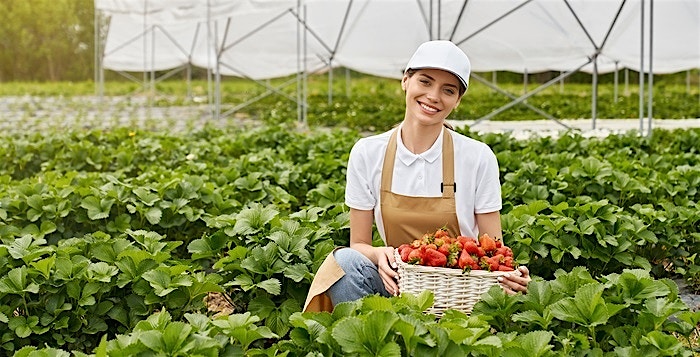Each year, on October 16th, the world comes together to celebrate World Food Day, marking the founding of the Food and Agriculture Organization (FAO) of the United Nations in 1945. It's a day to reflect on the importance of food and nutrition, to raise awareness of food insecurity across the globe and to focus on sustainable solutions to hunger and waste.
The importance of food: A universal human right
Food is more than just a necessity; it’s a fundamental human right. According to the FAO, over 820 million people worldwide are undernourished, while two billion suffer from food insecurity, not knowing when their next meal will be. This shocking reality starkly contrasts with regions of the world where food is abundant and often taken for granted.
Beyond nutrition, food is woven into the cultural and social fabric of every society. It connects families and communities, signifies celebrations and fosters bonds. This means that when access to food is limited, its impact stretches far beyond just hunger — it affects health, education and social well-being.
The global issue of food waste
While millions go hungry, food waste has reached staggering levels. According to the United Nations Environment Programme, one-third of all food produced globally is wasted, which equates to around 1.3 billion tons annually. This waste occurs throughout the entire food chain, from farms to homes.
Food waste is not only an ethical issue but also an environmental one. Wasted food contributes to 8-10% of global greenhouse gas emissions, while valuable natural resources like water and land are consumed unnecessarily to produce food that’s never eaten.
The link between food waste and sustainability
Sustainability in food systems is crucial for the future of both the planet and humanity. Reducing food waste is one of the most immediate and impactful actions we can take to build a more sustainable food system. When food is wasted, all the resources used to produce, transport and package that food are also squandered, contributing to the depletion of water supplies, deforestation and carbon emissions.
The key principles of sustainable food systems — conservation of resources, reducing environmental impacts and fair access to food — are integral to addressing food insecurity and the ongoing climate crisis. Sustainable agriculture practices, improved supply chain efficiencies and reducing consumption-driven waste are vital in ensuring that the world’s growing population can be fed without further straining the planet.
What is HCLTech doing already?
Here are some examples of how we endeavor to support this initiative:
In India: Uday is designed to combat urban poverty within key HCLTech cities through a series of strategic, long-, mid- and short-term projects. This multi-year initiative has successfully connected over 94,000 individuals to various Social Security Schemes, enhancing the quality of life for over 1.03 million residents, including children, parents and professionals.
Feeding America: Feeding America is the largest hunger-relief organization in the United States. Through this renewed partnership, HCLTech will work with Feeding America and food banks in locations with elevated rates of hunger. Through employee volunteering opportunities across the country, HCLTech will contribute to fight against food insecurity and food waste.
Further afield, we support nearly 250+ social initiatives worldwide. Highlights include partnerships with Salvati Copii Iasi, Little People and FEBA (European Food Bank) in Romania and the ‘Innovate Reconciliation Action Pact’, which supports Aboriginal and Torres Strait Islander people and communities in Australia. Our work in Brazil, Canada, Mexico and the US has further expanded our reach, with initiatives like meal distribution.
What can individuals do?
The good news is that individuals can play a significant role in creating a more sustainable food system. Here are some steps you can take to contribute:
- Plan and shop smartly: Plan meals ahead, buy only what you need and avoid over-purchasing perishable items. Making a list can help reduce impulse buys and food waste.
- Store food correctly: Proper storage can prevent food spoilage. Learn the best ways to store fruits, vegetables, and leftovers to extend their shelf life.
- Get creative with leftovers: Instead of throwing away leftovers, turn them into new meals. Leftover vegetables can be used in soups and stale bread can become croutons or bread pudding.
- Compost food scraps: For food that cannot be saved, composting is a great way to return nutrients to the soil instead of sending them to the landfill.
- Support sustainable brands and farmers: Buy from local farms, support brands committed to ethical sourcing and look for certifications that indicate sustainable practices.
- Educate and advocate: Raise awareness in your community about the importance of reducing food waste and promoting sustainable eating habits. Participate in local food drives or support organizations working to fight hunger.
A collective responsibility
World Food Day is a reminder that food is precious. While the global challenges of hunger, waste and sustainability can seem overwhelming, change starts at an individual level. Every meal matters. By making mindful choices about how we consume and waste food, we can all play a part in creating a healthier, more sustainable future for ourselves and generations to come.
Let’s honor World Food Day by taking steps today that can shape a better tomorrow.






